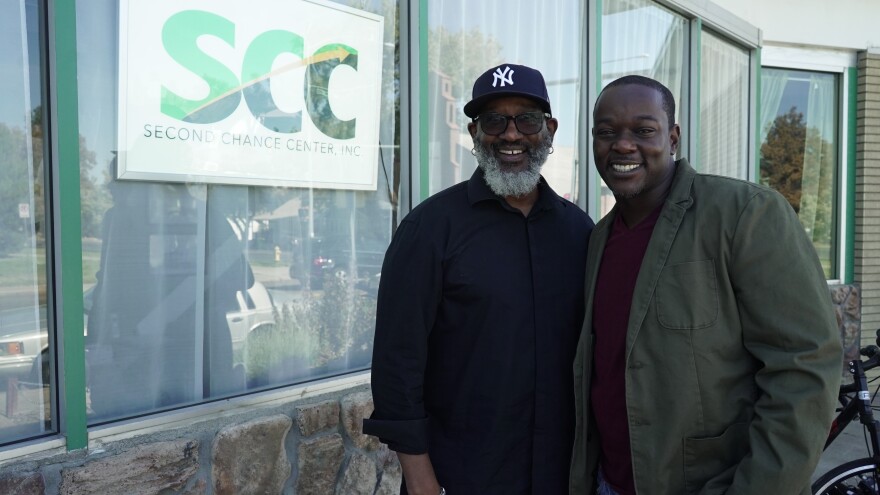After two decades in prison, Brad Simpson became a free man on Sept. 30. The 39-year-old has never paid rent, had an email account or registered to vote until now.
“If I don’t vote, I don’t have a chance to complain. I don’t have a chance to voice my opinion. I don’t have a chance to make the decision of whether or not I wanted this to happen or not,” Simpson said.
Simpson registered to vote 15 days after his release from prison. He sat at a computer at Second Chance Center, a community re-entry site in Aurora, and filled out the online form. Juston Cooper sat to Simpson’s left, helping him sort through the questions.
Cooper is the deputy director of the Colorado Criminal Justice Reform Coalition (CCJRC). CCJRC is a non-profit, non-partisan organization whose mission, according to Cooper, is to eliminate the overuse of the criminal justice system and advance community health and safety. In 2017 CCJRC registered as a voter registration organization.
The organization began registering parolees in June, just days after Gov. Polis signed House Bill 1266, restoring voting rights to the more than 9,000 people on parole in the state.
With this new law, Colorado is one of 16 states and the District of Columbia that allows people to vote immediately upon release from prison.
“People need to be able to participate in our democracy and fully engage in that democracy and have access and opportunity to do so,” Copper said. “We believe that that's what House Bill 1266 was able to do.”
Sean Morales-Doyle is senior counsel in the voting rights and elections program at the Brennan Center for Justice. There is no legitimate purpose in the criminal justice system, according to Morales-Doyle, for denying people who are living in the community the right to vote. From a criminal justice standpoint, it’s better policy to give people who are returning to their communities the right to vote.
Criminal disenfranchisement laws date back to the post-Civil War era, said Morales-Doyle, and attempts to dodge the 15th Amendment which allowed black men to vote.
“I think the question of why now is in large part sort of relic of that history rather than some policy decision that people are making in 2019 that this is the right thing to do,” Morales-Doyle said. “The existence of these policies in 2019, I think is largely a result of the fact that they were written into the state constitution a long time ago. And, it takes some work to change that.”
But there’s still a patchwork of state rules when it comes to voting rights for felons. People in Maine and Vermont never lose this right while those in Iowa and Kentucky are permanently disenfranchised.

Prior to House Bill 1266, individuals in Colorado had to wait until they were off parole to vote. This is true for Hassan Latif, the executive director of Second Chance Center.
Latif was on parole in 2008 when he attended the nomination of then-Democratic presidential candidate Barack Obama at Mile High Stadium in Denver. He was literally stuck on the sidelines.
“I really felt deprived knowing that I was on parole and that I would not be able to participate,” Latif said.
But Latif was also inspired. Four years later, he got off parole and registered to vote. Latif also founded Second Chance Center to help newly released individuals transition back to their communities. He partnered with CCJRC to help clients register to vote and hopes 2,000 will have registered by the 2020 election.
“I think it’s very important when you’re talking about people feeling empowered in their own lives, that’s something people can claim by claiming their right to vote and utilizing that vote,” Latif said. “We try to emphasize that to our clients here.”
So far more than 200 Second Chance Center clients are registered to vote on Election Day. That includes Brad Simpson, who finished the online form in about 10 minutes. He plans to vote for the first time.
“I gave up the right to have my freedom for the crime I committed. Now I have my freedom back. Part of being free in this country, in my opinion, is the ability to vote.”



